News . Best Practices UNESCO SDG3 Health through Augmented Reality
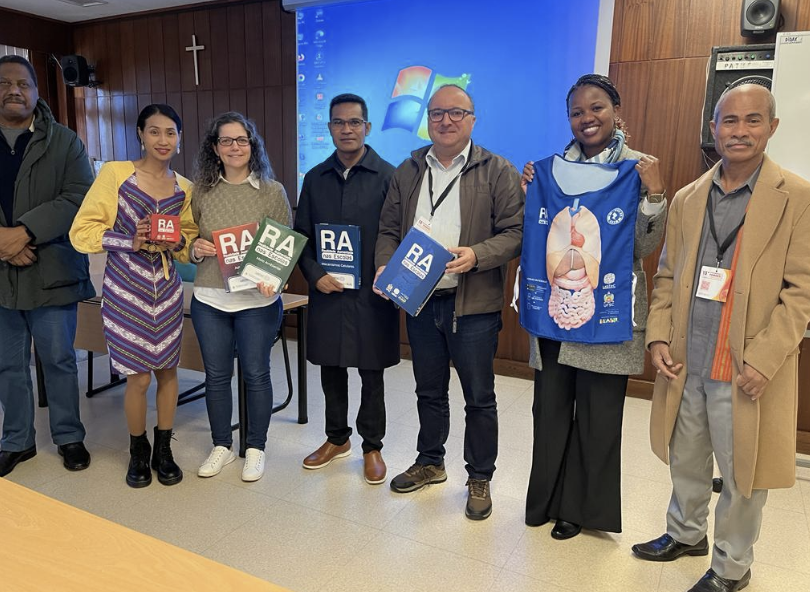
This practice presents an open schooling initiative on Sustainable Development through Augumented Reality, which was developed in the state of Santa Catarina between 01.09.2022 and 15.09.2023. The activities included . It was supported by UFSC and OU UK.
The central idea of the activity was to spark students’ curiosity by using news stories to connect science content to everyday life. The goal was for students to understand the relationship between the nervous system and the impact of psychoactive substances on the body, promoting greater interaction with their families and extending reflection beyond the classroom. Additionally, students were encouraged to engage with scientists to foster interest in pursuing STEM or science-related careers.
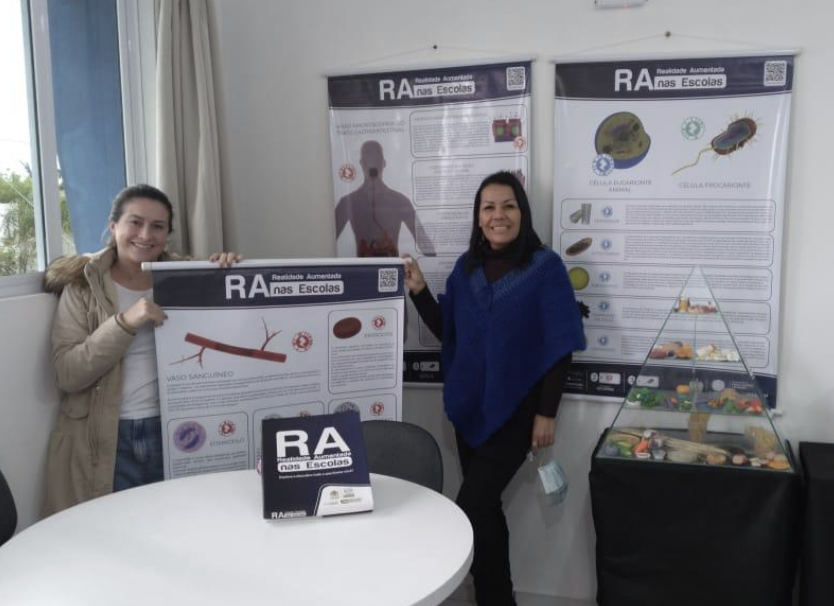
As part of the activities, teachers were given suggestions aligned with the National Common Curricular Base (BNCC), specifically for the 6th grade, within the thematic unit “Life and Evolution.” Among the suggested skills, students worked on explaining the functioning of the nervous system and how it can be affected by psychoactive substances (EF06CI10), as well as justifying the role of the nervous system in coordinating motor and sensory actions based on its structures (EF06CI07).
Throughout the project, teachers had the freedom to apply Augmented Reality (AR) cards as they saw fit, promoting a dynamic and tailored exploration of the content for the students.
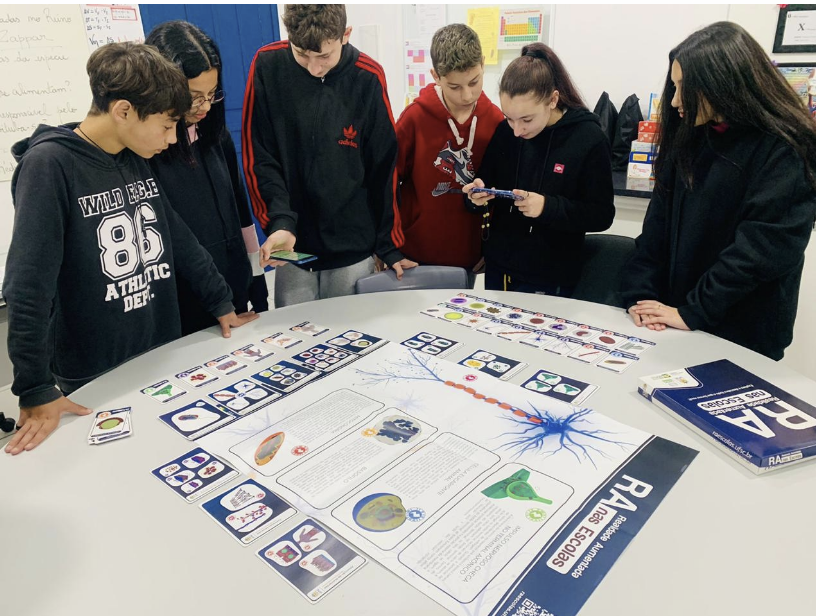
The students participated in a series of activities in three distinct phases, aiming to explore the functioning of the nervous system and the impact of psychoactive substances on the body using AR technologies and interactions with scientists.
– CARE: Students were encouraged to care about everyday issues raised by a news story related to the use of psychoactive substances. They explored how the nervous system can be affected by these substances using AR cards to visualize neurons, axons, and dendrites. This phase piqued students’ curiosity and motivated a deeper exploration of the content.
– KNOW: Students discussed the role of the nervous system in coordinating motor and sensory actions of the body. They also addressed how science can clarify the damage caused to the body by psychoactive substances and discussed the social impacts of substance consumption. The class listed the main problems related to the topic, broadening their understanding of the associated risks.
– DO: Students were encouraged to take the knowledge they acquired to their families. They were tasked with discussing the subject at home and bringing questions and curiosities to the scientists. Families also proposed actions to combat the problems identified in the previous phase, and students brought these ideas back to the classroom in the following session.
In the **Closing** phase, students watched a video with a guest scientist who answered their questions and explained how knowledge of the nervous system is related to their field of expertise. This brought students closer to scientific practice and stimulated their interest in scientific careers. After the video, students completed a questionnaire about the activities and the knowledge they had gained.
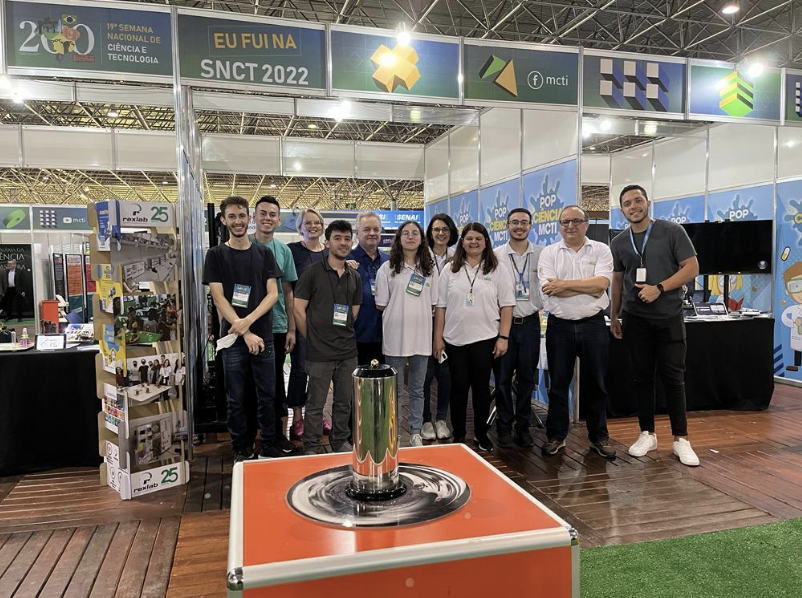
**Teaching Results**
The results showed varying levels of teacher confidence regarding the activities:
1. **Small Group Discussions (A08)**: 83% of teachers felt confident.
2. **Use of Questions for Divergent Thinking (A07)**: 76% of teachers felt confident.
3. **Interaction with Researchers and Scientists (A05)**: 71% of teachers felt confident.
4. **Encouraging Participation in Science Activities Outside School (A04)**: 71% of teachers felt confident.
5. **Promoting Discussions on Science and Society (A02) & Helping Generate Evidence-Based Questions (A03)**: Over 70% of teachers felt confident.
6. **Teaching Scientific Inquiry with Real-World Problems (A01)**: 65% of teachers felt confident.
7. **Encouraging Discussion of Scientific Topics with Family (A06)**: 66% of teachers felt confident, with 24% feeling less confident.
In all activities, only a small percentage (less than 5%) felt very unsure.

**Learning Outcomes**
Students generally demonstrate a positive attitude toward science and its importance. The vast majority (82%) agree or strongly agree that learning science will be useful in their daily lives. Even more (86%) recognize the importance of science, technology, and mathematics for problem-solving.
There is a strong belief (87%) among students that science helps people worldwide lead pleasant and healthy lives, indicating an understanding of science’s global impact.
However, when it comes to personal confidence in science, the results are more mixed. Only about a third of students (31%) feel confident in their science knowledge, with a similar proportion (31%) feeling confident using mathematics to solve scientific problems. Slightly more students (42%) feel confident using science to generate questions and ideas.
Students show more confidence in their ability to justify views using arguments and evidence, with 43% feeling confident in this area. This suggests that while they may not feel as confident in their scientific knowledge, they have developed some critical thinking skills.
Regarding practical application, nearly half of the students (48%) feel confident in doing science projects with colleagues, family, and scientists. A similar proportion (49%) feel confident talking about science, indicating a willingness to engage with scientific topics.
Encouragingly, the vast majority (80%) of students express interest in doing projects with others using science, suggesting a desire for collaborative, hands-on learning experiences in science.
When it comes to enjoyment and future aspirations, 57% of students find learning science fun. However, opinions are more divided on career prospects, with 42% interested in a job that uses science, and 37% aspiring to be seen as experts in science.
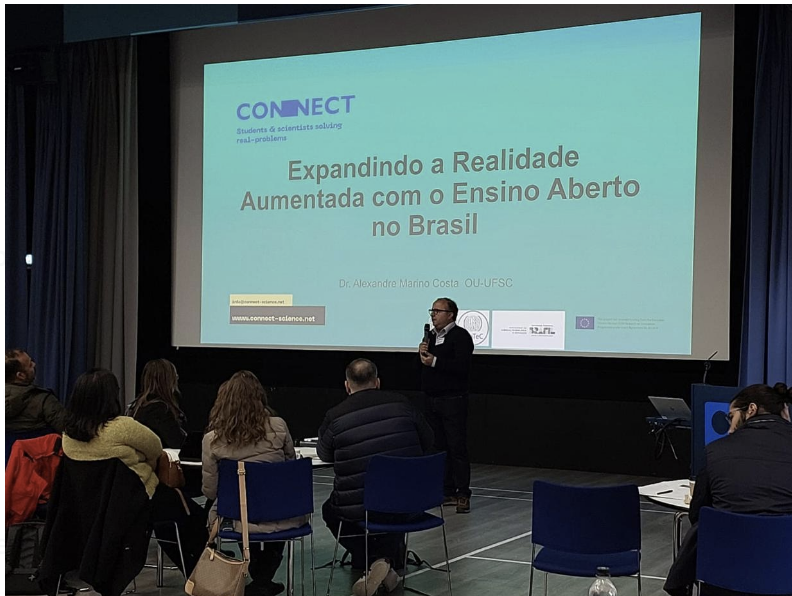
Overall, while students generally recognize the importance and value of science, there is room for improvement in building their confidence and skills in scientific practices. The data suggests that hands-on, collaborative approaches to science education might be particularly well-received by students.
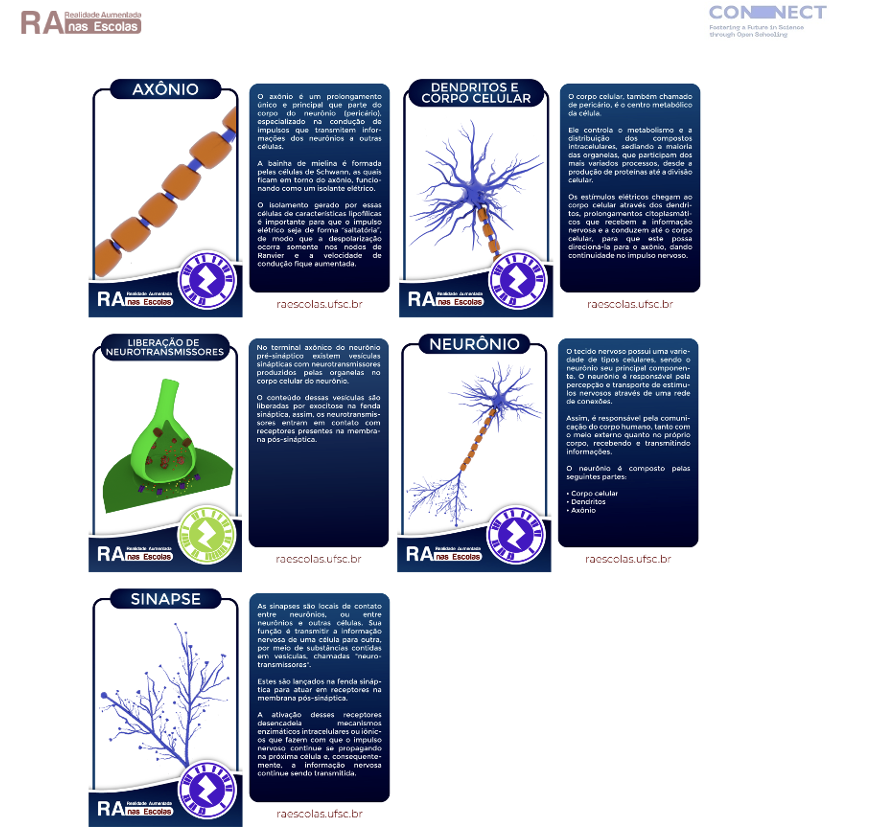
Links:
Results
[00:12, 04/10/2024] Students
[01:16, 04/10/2024] Teachers https://openeducation.eu.qualtrics.com/reports/public/b3BlbmVkdWNhdGlvbi02NDc3ZTY1M2IyYTU4MjAwMDhlYjZhODMtVVJfYnlMM3lKSFY0YlBxUkhE
THIS PRACTICE WAS SELECTED BY CONNECT ADVISORY TEAM TO BE PRESENTED AT UNESCO 2024
CONGRATULATIONS TO UFSC TEAM!